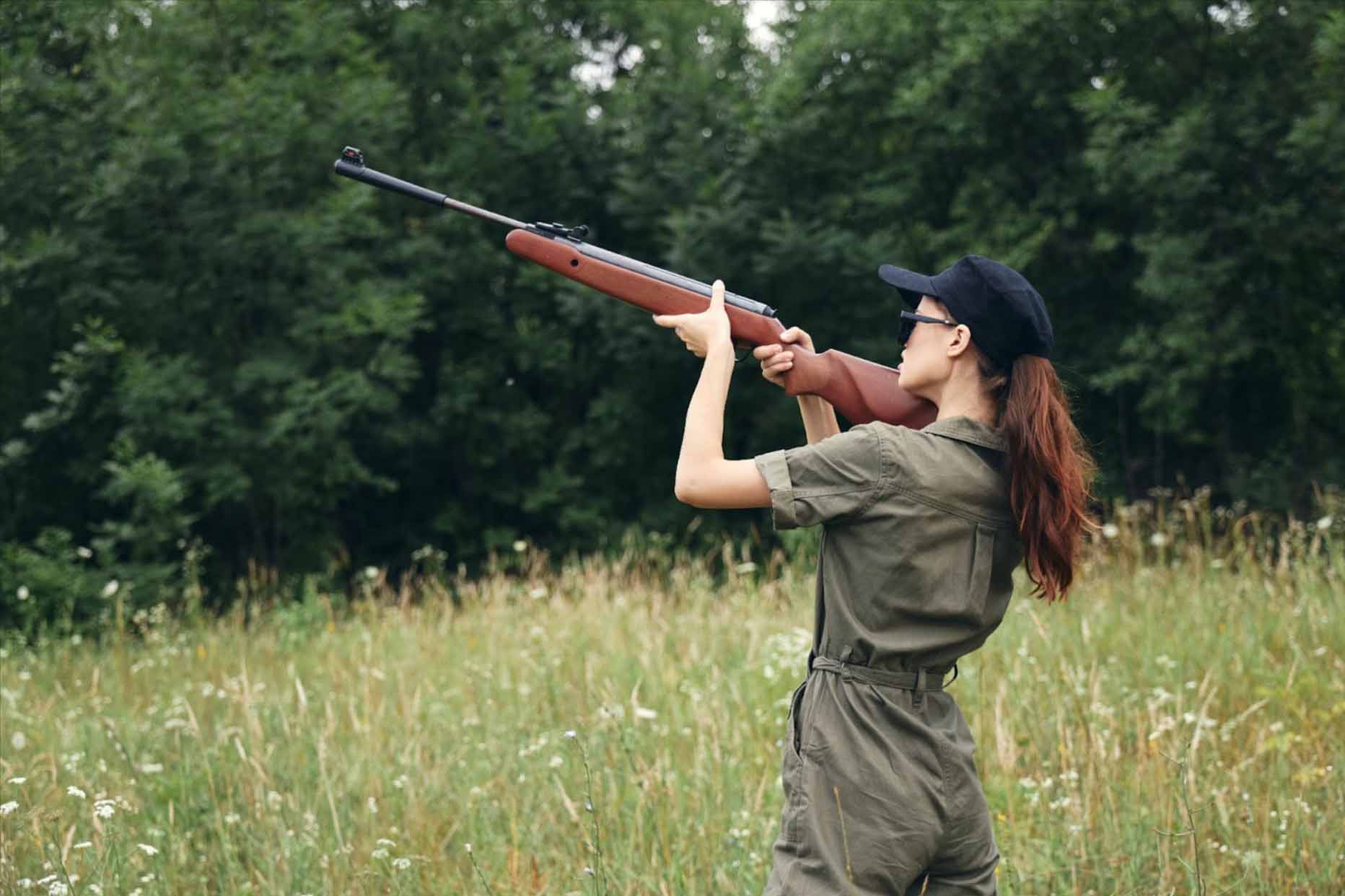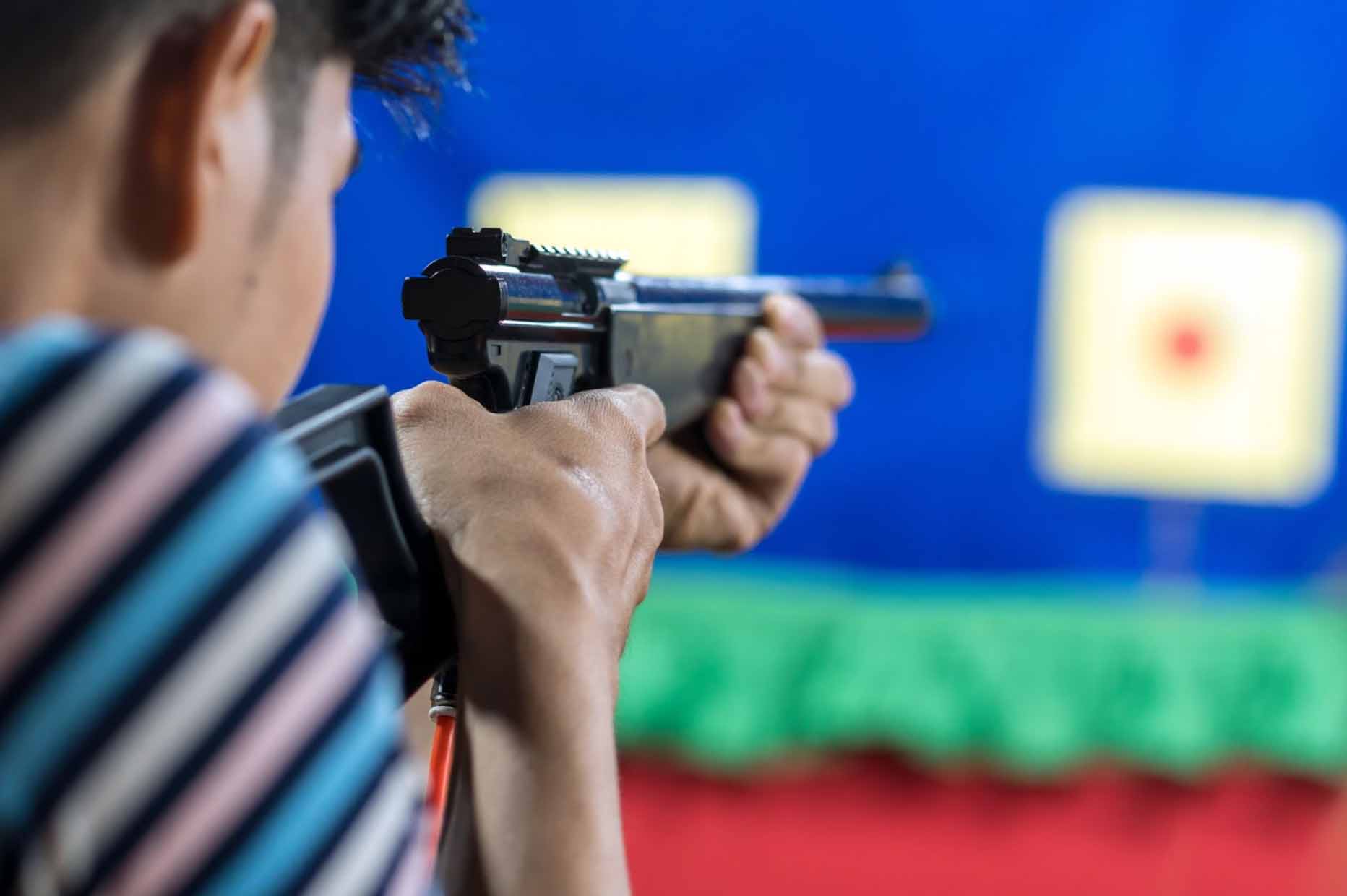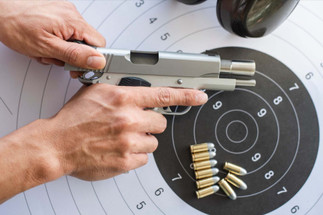Jun 24th 2024
Gun Use in Sport Shooting vs. Hunting
Gun Use in Sport Shooting vs. Hunting
Firearms serve distinct purposes in sport shooting and hunting, each demanding specific types of guns and handling skills. In sport shooting, firearms are used in a controlled environment where precision, speed, and accuracy are paramount. This discipline includes various activities, from Olympic-style target competitions to tactical shooting sports. Conversely, hunting involves using firearms in natural settings, focusing on accuracy, reliability, and power to ensure humane practices. The choice of a gun in hunting is heavily influenced by the type of game being targeted, ranging from tiny creatures to enormous games.
The Diversity of Gun Use in Sports and Hunting
The array of firearms used in sports and hunting is extensive, with each type designed to meet the specific demands of the activity. Sport shooters often rely on highly customized handguns, rifles, and shotguns tailored to particular competition rules and personal ergonomics. In contrast, hunters typically choose rugged, powerful firearms that can perform under different environmental conditions. Grasping the diversity of weapons is a critical factor for participants in both fields, as it guides gun selection, maintenance, and use decisions.
Historical Evolution of Guns in Sports and Hunting
Initially, firearms were indispensable tools for survival, primarily used for defense and hunting. As societies stabilized and technology advanced, the role of firearms expanded into the realm of sports. This transition marked the birth of sport shooting, which began as a means for hunters and soldiers to sharpen their skills during off-seasons or peacetime.
Cultural Shifts and the Rise of Competitive Shooting
Sport shooting gained prominence with the establishment of shooting clubs and the inclusion of shooting sports in the first modern Olympic Games in 1896. These developments highlighted the growing cultural significance of firearms beyond mere survival tools, promoting a disciplined and competitive approach to gun handling. The recognition of shooting as a legitimate sport also led to increased innovation in firearm technology and training methods, further solidifying its place in modern recreational activities.
Hunting From Necessity to Conservation and Sport
Meanwhile, hunting has also transformed. What was once a necessity for sustenance has become a regulated sport, often centered around conservation efforts and population control of various species. This shift reflects broader changes in societal attitudes towards wildlife and firearms, emphasizing responsible use and ethical practices.
These historical insights shed light on how guns have been woven into the fabric of human culture, evolving with changes in societal needs and technological advancements. Understanding this history enhances appreciation for enthusiasts and practitioners in sport shooting and hunting. It promotes a responsible approach to firearm use today.

Types of Guns Used in Sport Shooting
Sport shooting encompasses a variety of firearms, each chosen for its precision, customization options, and suitability for competitive environments. Rifles, handguns, and shotguns are the main categories, each subdivided further according to the specific discipline of sport shooting. Understanding these distinctions is crucial for athletes looking to excel in their chosen sport.
Precision Rifles for Competitive Sport Shooting
Rifles are favored in long-range competitions for accuracy and stability. These rifles often feature heavy barrels, adjustable stocks, and sophisticated optical sights to enhance shooter consistency. In biathlon events, lighter .22 caliber rifles are used for their ease of handling and quick firing capabilities during ski stops. The precise engineering of these rifles ensures that athletes can achieve maximum accuracy under competitive conditions.
Handguns for Precision and Rapid-Fire Sport Shooting
Handguns, particularly those used in Olympic rapid-fire and precision events, are designed for balance and swift aiming. These firearms often have elaborate customization to fit the shooter's hand perfectly, enhancing control and comfort. The precision and rapid-fire disciplines require features that aid in quick target acquisition and consistent performance. Handguns used in sport shooting are highly specialized tools that reflect the intense focus on accuracy and speed.
Shotguns for Clay and Skeet Shooting Sports
Shotguns used in sports shooting, like those for skeet and trap shooting, are optimized for quick, repetitive shooting. These shotguns have features that minimize recoil and maximize the speed of follow-up shots, which is essential in competitions where targets are moving. The barrels are usually overbored to improve pattern consistency and reduce felt recoil. Such design considerations ensure that shooters can maintain accuracy during rapid sequences.
The different guns used in sport shooting illustrate the depth of customization and technical sophistication required in this field. To achieve peak performance, competitors must select their firearms carefully, considering the specific requirements of their sport.
Types of Guns Used in Hunting
Hunting requires firearms that can deliver reliability and power suited to the varied environments and game targets. Rifles, shotguns, and, less commonly, handguns are selected based on the type of hunting being undertaken. Each firearm type brings advantages that can enhance the hunter's success and efficiency.
Rugged Rifles for Hunting Applications
Hunting rifles are valued for their long-range accuracy, which is crucial when targeting game like deer or elk in open terrain. These rifles come in various calibers, tailored to the size and nature of the animal being hunted. High-caliber rifles, capable of delivering lethal force at long range, are preferred for larger games to ensure a humane kill. The construction of these rifles often emphasizes durability and reliability under rugged conditions.
Shotguns for Dynamic Hunting Scenarios
Shotguns are preferred for bird hunting and small game because they can fire multiple projectiles, increasing the likelihood of a hit. The choice between side-by-side, over-and-under, and semi-automatic shotguns depends on personal preference and the specific hunting situation. Bird hunters value shotguns for their wide-shot spread and quick point-and-shoot capabilities. The adaptability of shotguns with different choke options allows hunters to tailor their equipment to the specific needs of the hunting environment.
Handguns for Specialty Game Hunting
Handguns are less commonly used but find their place in hunting small game or as a backup weapon for protection against predators. These firearms offer portability and ease of use at close ranges, which can be advantageous in dense forests or heavy brush. Handgun hunting requires proximity to the game, demanding high skill levels in stalking and shot placement. The use of handguns in hunting emphasizes the need for precision and advanced hunting skills.
Choosing the right firearm for hunting involves understanding the specific requirements of the game and environment. Hunters must consider factors such as the type of game, the terrain, and the distances typically encountered to select the most effective firearm for their needs.

Skills Required for Gun Use in Sport Shooting and Hunting
The skills required for sport shooting and hunting are both demanding but focus on different aspects of firearm use. Precision, control, and timing dominate sport shooting, while hunting emphasizes stealth, tracking, and quick decision-making. Mastery in either field requires dedication and continuous practice.
Precision and Technique in Sport Shooting
Sport shooting skills center on precision and rapid response to targets under timed conditions. Athletes must develop a high level of marksmanship, with the ability to consistently place shots accurately. The ability to control breathing and maintain composure under pressure is crucial during competitions. Mastery of these skills comes from extensive practice and mental preparation, focusing on minute adjustments for perfect execution.
Fieldcraft and Marksmanship in Hunting
Hunting skills merge fieldcraft with marksmanship, requiring hunters to understand animal behavior and tracking. Stealth and patience are crucial, as is the ability to make quick, ethical decisions regarding shot placement. Hunters must also be adept at handling their firearms in varied environmental conditions—skills honed through experience and respect for the natural world. Successful hunters know their environment and the game, predicting movements and adapting strategies accordingly.
Skill sets in sport shooting and hunting are tailored to meet the unique demands of each practice. Understanding and developing these skills enhances performance and ensures safety and ethical participation. Continuously improving relevant skills contributes significantly to success and enjoyment in these disciplines.
Ethical and Legal Aspects of Gun Use
Ethical and legal considerations form the backbone of responsible gun use in sports shooting and hunting. Adherence to these guidelines ensures that the activities comply with the law and uphold high standards of conduct. Such considerations are fundamental in maintaining public trust and the continued privilege of engaging in these practices.
Ethics and Fair Play in Sport Shooting
Ethical considerations in sports shooting revolve around fairness, respect for competitors, and adherence to the established rules of the competition. Sportsmanship is essential, as it encourages competitors to behave honorably and with integrity. Legally, sport shooters must comply with firearm safety, use, and transport regulations, often scrutinized under national and international laws. These laws ensure the competition is fair and safe for all participants and spectators.
Hunting Ethics and Conservation Principles
Hunting ethics focus on respect for wildlife and the environment, emphasizing the necessity of sustainable practices. Hunters are encouraged to follow the principle of fair chase, avoiding any practice that would give them an undue advantage over the animals. Legally, hunters are bound by regulations that dictate when and where they can hunt, what species are legal to target, and the hunting methods allowed. These laws aim to control wildlife populations sustainably and ethically, balancing ecological needs with recreational hunting.
Legal Frameworks of Gun Use
The legal frameworks governing gun use in sport shooting and hunting are complex and vary significantly by region. They include licensing, firearm registration, and specific restrictions on the types of firearms used in various contexts. Compliance with these laws is critical, as violations can result in severe penalties, including fines and loss of the right to own or use firearms.
Ethical and legal considerations in gun use are compliance to foster a culture of respect and responsibility. Those engaged in sport shooting and hunting must stay informed of the evolving legal landscape and ethical debates that shape these practices. This commitment ensures the sustainability and enjoyment of these activities for future generations.
Navigating Responsibilities and Skills in Gun Usage
Responsible gun use in sport shooting and hunting is crucial in maintaining traditions of precision, ethics, and respect within each community. These activities demand more than just skill with a firearm; they require a firm commitment to responsible behavior and strict legal standards. By staying informed and conscientious, enthusiasts and practitioners ensure that the culture of shooting sports and hunting remains vibrant and sustainable. This continuous dedication helps preserve the integrity of these practices for future generations.
Visit our Gunline Shooting blog for comprehensive insights on gun use and shooting techniques.

